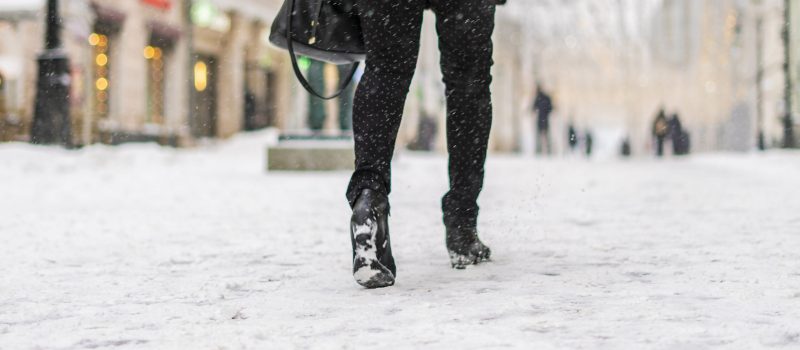As winter approaches, snow and ice-related accidents become a common hazard in Massachusetts. Slip and fall accidents on icy sidewalks, parking lots, or driveways can lead to serious injuries and raise questions about who is responsible. Massachusetts law provides clear guidelines for determining liability in these cases, helping injured individuals seek compensation for their medical expenses, lost wages, and pain and suffering.
Premises Liability and the Duty of Care
Massachusetts law holds property owners and managers responsible for maintaining safe conditions on their premises. This includes clearing snow and ice in a reasonable timeframe after a storm. The concept of premises liability requires property owners to take steps to prevent injuries to lawful visitors.
In 2010, the Massachusetts Supreme Judicial Court clarified that property owners are required to remove both natural and unnatural accumulations of snow and ice. This means that property owners must take reasonable measures to make their property safe after a snowfall, regardless of whether the accumulation is due to natural causes or human activity.
Who Is Liable in Snow and Ice Slip and Fall Accidents?
Liability for snow and ice-related accidents typically depends on the circumstances of the fall and the property owner’s actions. Factors that can influence liability include:
- The Timing of the Accident: Property owners are given a reasonable period to address snow and ice after a storm. Accidents occurring shortly after snowfall may not result in liability.
- The Condition of the Property: Evidence of untreated ice, uneven walkways, or poorly maintained surfaces can indicate negligence.
- The Visitor’s Behavior: Injured individuals must also exercise caution. Courts may reduce compensation if the victim was distracted or wearing inappropriate footwear.
In cases involving rental properties or commercial spaces, the responsibility for snow and ice removal may fall on landlords, tenants, or contracted maintenance companies, depending on the terms of their agreements.
Comparative Negligence in Slip and Fall Cases
Massachusetts follows a comparative negligence rule, meaning that if the injured person is found partially responsible for the accident, their compensation may be reduced by their percentage of fault. For example, if a court determines the victim was 20% at fault, their award would be reduced by 20%.
Comparative negligence emphasizes the importance of gathering strong evidence to demonstrate the property owner’s failure to maintain safe conditions. This can include photographs of the icy area, witness statements, and medical records documenting the injuries sustained.
Steps to Take After a Slip and Fall Accident
If you experience a slip and fall accident on snow or ice, taking immediate action can strengthen your claim:
- Document the Scene: Take photographs of the icy area and your injuries.
- Seek Medical Attention: Promptly treating injuries creates a record of your condition and connects them to the accident.
- Report the Incident: Notify the property owner or manager as soon as possible.
- Consult an Attorney: A personal injury attorney can help evaluate your case, gather evidence, and pursue compensation.
Don’t Wait to Seek Compensation for Winter Injuries
If you’ve been injured in a slip and fall accident caused by snow or ice, it’s essential to act quickly. An experienced personal injury attorney can guide you through the legal process, gather evidence to prove liability, and help you secure the compensation you deserve. Contact a trusted attorney today to discuss your case and protect your rights.





